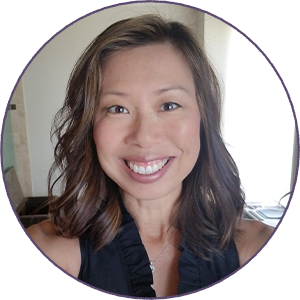Most of us at the age of eight were convinced we would be astronauts, or rocket scientists, or be a world-famous singer. Then as we grew up, it became apparent that it wasn’t to be.
But Dr. Lynette Bui isn’t most of us. She told her second-grade teacher that she wanted to become a doctor, and she actually followed her dreams – and her dad’s footsteps – to become a family medicine physician.
“I guess I always kind of knew,” she says.
Another monumental moment for Dr. Bui was when at the age of 16 she tore her ACL while playing volleyball. The treatment she got from her orthopedic surgeon cemented her plan to go into medicine: “Just seeing the difference it can make in somebody’s life really had an impact on me,” she recalls.
Using locum tenens to live life with no regrets
When Dr. Bui considered pursing locum tenens as a full-time career three years ago, it meant making changes in her life but she decided it was now or never. “I would talk to people who were retired already or about to retire, and I noticed that they all said, ‘If I could do it again and I was in my 30’s and single and didn’t have kids, I would have taken the time to go see what’s out there.’” So she told herself, “It’s now or never.”
Dr. Bui resigned her full-time faculty position at University California, Irvine, and went on the road. She has been fortunate enough to still be able to teach part-time when she’s not doing locums. She has a lecture series for the university’s residents called “Lessons from the Road,” where she shares insights learned from her experiences working locums.

The challenges of working locum tenens in a small town
Dr. Bui wanted to take advantage of her California medical license and work in a small California town needing a locum tenens physician. Her first assignment was in a town she had never heard of: Healdsberg in Sonoma County.
“Everyone thinks about wine country when you think about Sonoma County, but I was working in a federally qualified health clinic,” she says. “They treat the underserved, uninsured, Medi-Cal patients, and almost 100 percent are Spanish speaking.”
The clinic primarily served those who worked in the vineyards, and Dr. Bui explains that the patients there typically waited until the end of harvest to seek treatment, which meant she was treating patients already in late-stage disease.
“It was really challenging serving this population with few resources, and I often diagnosed things I’d never managed before,” she recalls. “It was a really good learning experience, and I was able to help a lot of people; often there was nobody else for them to see.”
Though it was a small facility in a small town, Dr. Bui never felt like she was alone.
“I was out of my comfort zone, and I learned so much,” she says. “There were things I’d never seen before, so I had to look it up or call a colleague. It’s not like I was there on my own. When working locum tenens, there’s always someone you can call to ask for help. It’s challenging; it was almost like being a resident again.”
A reminder of why you went to med school
Dr. Bui has found that working locum tenens means practicing back-to-basics medicine, and not having to sacrifice patient time for time spent in meetings or on administrative work. She loves that feeling of walking into a locums assignment and practicing back-to-basics medicine the way she pictured herself doing when studying for her board exams. She said that’s her favorite part of working locum tenens.
“I think the best thing for me is that I just get to be a doctor,” she says. “It’s nice to walk into a clinic where you know they need help, and you know you’re able to help. People are genuinely appreciative that you’re there, and on day one you’re always welcome because they need the help.
“I just show up and be a good doctor. That’s why I went to med school, right?”
Life beyond locums
When she’s not treating patients, Dr. Bui still finds time to have fun. Every weekend she plans a road trip to visit friends in the area or to engage in one of her favorite activities. “I’m a beach volleyball player and I sail, so I always try to find one of those two things,” she says. “On assignment in Denver I actually joined a beach volleyball team; they have indoor warehouses with beach sand.”
Her advice for doctors interested in trying the locums lifestyle: “Keep your mind open to where you want to go. The first place I ever went was a place I had never heard of before, and it was such a good experience because I met so many great people. Be flexible and don’t be afraid to do something that you’ve never done before. Challenge yourself to learn new things.”



